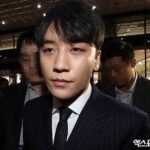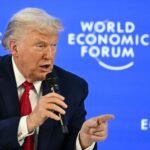
South Korea’s private equity industry, now in its 20th year, is entering a pivotal leadership transition as second-generation dealmakers step into key roles long held by the industry’s founders.
Born largely out of the post-financial-crisis restructuring era of the early 2000s, the Korean PE industry is shifting from a founder-centric model to a deeper, institutionally structured ecosystem, one increasingly defined by professionals in their 40s and early 50s.
At the country’s largest buyout firms, this emerging leadership bench is already shaping deal flow, diversifying strategies and sharpening competition in a market that has grown from distressed-asset clean-ups to one of Asia’s most active platforms for mid-market buyouts, corporate carve-outs and private credit.
MBK PARTNERS’ NEXT BENCH STEPS FORWARD

At MBK Partners, one of Asia’s highest-profile buyout firms focusing on North Asia, the spotlight is turning to a cohort of partners born in the late 1970s, who now lead many of the firm’s marquee transactions.
Among them, Lee Jin-ha, a former Bain & Company consultant, is widely viewed as a leading candidate in the firm’s eventual leadership succession.
Lee, born in 1977, has been at the center of several major MBK deals ranging from Doosan Machine Tools to Orange Life Insurance and Lotte Card Co.
IMM PE ACCELERATES SUCCESSION
First-generation domestic managers are also advancing their internal transitions. At IMM Private Equity Inc., partner Yoo Hun-suk is increasingly seen as part of the firm’s future leadership core.
A former accountant and transaction adviser, Yoo, born in 1981, joined the firm in the early 2010s and has since played a key role in landmark deals such as the acquisition and later partial sell-down of AirFirst Co., the local industrial gas business carved out from Linde Korea.
He is part of a rising group that includes fellow partners Kim Jeong-hwan and Moon Joo-ho, who now steer deals and special situations strategies.

This shift is also visible at other first-generation PEF houses. Skylake Investment, founded by Chairman Chin Dae-je, is increasingly driven by Presidents Kim Young-min (born in 1973) and Lee Sang-il (born in 1972).
Similarly, STIC Investment has reorganized its leadership around Chai Jin-ho, born in 1971, the head of its private equity division.
VIG PARTNERS MOVES BEYOND BUYOUTS
The generational shift is equally visible at mid-market specialist VIG Partners.
While managing partners Lee Chul-min and Shin Chang-hoon, both in their early 50s, remain active, a younger slate of partners has also taken the lead in expanding the firm’s credit and structured-capital capabilities.
Among them, Han Young-hwan (born in 1983) has emerged as a central figure in VIG’s growth.
A former Goldman Sachs Special Situations Group executive, Han leads VIG Alternative Credit, which has swiftly built a profile in private credit and structured deals, including growth funding for Korean prop-tech firm Zigbang.
The increasing adoption of credit and hybrid-capital strategies among second-generation managers underscores a broader transition from classic leveraged buyouts to a more diversified investment approach.
YOUNGER HOUSES STAND OUT IN CARVE-OUTS AND RESTRUCTURING

The next wave is not limited to successors within large firms. A growing number of younger-founded houses are rising on the strength of specialized strategies.
At Glenwood Private Equity Co., CEO Lee Sang-ho, born in 1977, has built an influential franchise in corporate carve-outs, helping conglomerates shed non-core divisions while creating value through restructuring and operational turnarounds.
His work has made Glenwood a go-to player for complex industrial transactions.
Other notable figures among Korea’s newer generation of independent PEF founders include Lee Ki-doo, who launched Crescendo Equity Partners in 2012, and Rha Min-sang, head of Praxis Capital Partners.
Affirma Capital, a Singapore-based buyout PE firm, is also fronted in Korea by a next-generation leader, Shim Min-hyun (Thomas). Born in 1979, Shim has spearheaded many of the firm’s waste-management and environmental deals, an increasingly attractive segment for global ESG-focused investors.
Dominus Investment, founded by CEO Jeong Do-hyun, is also witnessing a greater role for its second-generation dealmakers, led by Vice President Koh Byung-wook.

A MATURING MARKET MEETS A NEW COHORT
The shift to younger leadership comes as the Korean PE market matures from its crisis-driven origins to a more institutionalized, globally connected industry.
Deal structures are becoming more sophisticated, investment horizons longer and cross-border strategies more common.
At the same time, the new generation inherits a tougher environment like higher interest rates, slower exits and increased public and regulatory scrutiny of PE ownership.
But their backgrounds, ranging from global consulting and investment banking to special situations and structured credit, seem to have equipped them with a more varied tool kit than the industry’s pioneers had two decades ago.
If the founders built Korea’s PE industry, the second generation is poised to define its next chapter, one marked by broader strategies, deeper specialization and a more global mindset, industry experts said.














